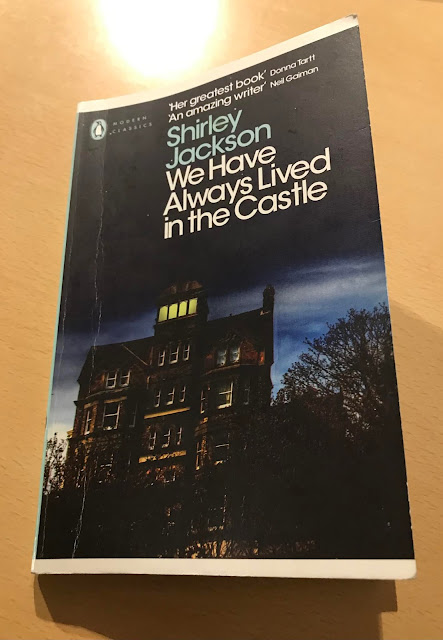Back to the Old House - Shirley Jackson's 'We Have Always Lived in the Castle'
A friend, one who had encouraged me to read Shirley Jackson's We Have Always Lived in The Castle, had already primed me for the novel's electrifying final pages. And sure enough, the unsettling tones of New England Gothic gave way to a glorious fairy tale fizz that coursed through my body. Perfect. A story for adults that take you back to your childhood and the reasons that you fell you in love with reading in the first place. I looked forward to unquiet dreams.
Yet there was something else going on in those closing lines. A deeper, darker magic that I wasn't quite putting my finger on. What exactly was it? I read the final page once again, smiling at the tiny, sinister typeset spider that brought the tale to a close. Something was still missing. I read one more time and then it struck me - and I'm sure I'm far from being the first to notice this.
The closing dialogue mirrors the songs that the townsfolk sing of Merricat and Constance. The prose gently, imperceptibly on first reading, slips its shackles and dances ghoulishly into the realm of murder-ballad.
"I wonder if I could eat a child if I had the chance."
"I doubt if I could cook one," said Constance.
I flick back through the pages and remind myself of the townsfolk's taunts.
I flick back through the pages and remind myself of the townsfolk's taunts.
"Merricat, said Connie, would you like a cup of tea?
Oh, no, said Merricat, you’ll poison me."
Oh, no, said Merricat, you’ll poison me."
I count the syllables, note the rhyme, and smile, particularly at the 'said Constance', as Jackson, our omniscient voice, elides maliciously into Merricat and Constance's response to the village.
It's glorious stuff, and one that now starts to solve some of the conundrums posed by Josephine Decker's biographical film Shirley which I watched a few weeks ago. The deliberate elisions taking place in the novel - Jackson loathed many of the people of North Bennington, a sleepy Vermont village where she spent nearly half of her life - are hard at work in Decker's film. We are clearly meant to take the film's biographical truth with a pinch of salt. Jackson had three children. In the film she is childless (what has she done with those children? Eaten them?) Indeed, the crossovers between this novel and the film are numerous: the fetishizing of mealtimes; the appearance of Amanita phalloides, better known as the Deathcap mushroom (Merricat's rundown of the fungi's deadly properties to the ghastly Charles is my favourite moment in the novel); the perils of venturing out into society and the safety of locking yourself away in your home.
Of the latter, dark urban-myths are forged. And We Have Always Lived in the Castle is one of the best that I've ever read. The privilege is to see it from the point of view of the inside of that dilapidated old house that is a staple of all of our childhoods.




It's the ambiguity of M & C's relationship that keeps me rereading.
ReplyDeleteAnd you're right: it's practically impossible not to project Jackson's bio on her fiction. Not that this is a bad thing.